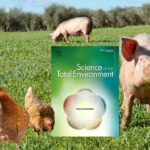
Risks associated with nano MBBT

By the AVICENN team – Last updated November 2020
Risks associated with nano MBBT
MBBT is insoluble and persistent / bioaccumulative.
In its opinions published in 2013 and 20151See :
– Opinion on 2,2′-Methylene-bis-(6-(2H-benzotriazol-2-yl)-4-(1,1,3,3-tetramethylbutyl)phenol), Scientific Committee on Consumer Safety (SCCS / CSSC), COLIPA No. S79, SCCS/1460/11, March 2013 (revised July 2013)
– Opinion on 2,2′-Methylene-bis-(6-(2H-benzotriazol-2-yl)-4-(1,1,3,3-tetramethylbutyl)phenol) (nano form), Submission III, SCCS, SCCS/1546/15, March 2015 (publication June 2015)., the European Scientific Committee on Consumer Safety (SCCS) supported the use of an uncoated form of MBBT as a UV filter in dermally applied products, mainly on the basis of a lack of dermal absorption as insoluble particles.
It has been permitted since 2018 at a concentration of 10% m/m, except for applications that may result in end-user lung exposure through inhalation of this substance.
However, due to the inflammatory effects by inhalation as well as a lack of clarity with respect to the potential genotoxicity/carcinogenicity and because some applications listed in the European catalog of nanomaterials used in cosmetics can lead to oral or inhalation exposure, MBBT nano was ranked as the highest risk nanomaterial in the cosmetic sector by the SCCS in October 20202Cf. Scientific advice on the safety of nanomaterials in cosmetics – Preliminary advice, Scientific Committee on Consumer Safety (SCCS / SCCS), 5 October 2020: Priority for Risk Potential (according to Brand et al., 2019): 34.
Any questions or comments? This information sheet compiled by AVICENN is intended to be completed and updated. Please feel free to contribute.
Upcoming Nano Agenda

- International conference on metallic nano-objects for experts working in the interdisciplinary field of metallic nanoparticles, with a particular emphasis on nanoparticle synthesis and characterization, plasmonics, optics and photonics, catalysis, biomedicine, electronics, and nanoparticle recycling
- Organizers / Partners: CNRS, Bordeaux University, Bordeaux INP, ICMCB, CRPP, CBMN, ISM
- Website: https://mno2026.sciencesconf.org
- Toxicokinetics: the fate of chemicals in the body” training course:
- the different routes of entry for toxic products
- the importance of toxicokinetics in preventing substance toxicity,
- xenobiotic absorption, distribution, metabolism and elimination
- nanoparticle toxicity
- Organizer: Association Toxicologie Chimie (ATC)
- Date: March 26, 2026
- Speaker: Nicole Proust (Research Engineer, CNRS Honorary Research Director, Palaiseau)
- Website: www.atctoxicologie.fr/…
- Two days of information, discoveries and testimonials for occupational health and safety professionals, experts and enthusiasts to discuss chemical risk prevention in the workplace.
- Organizers: Association TOXILIST
- Website: https://toxidays.fr/
File initially created in November 2020
Notes and references
- 1See :
– Opinion on 2,2′-Methylene-bis-(6-(2H-benzotriazol-2-yl)-4-(1,1,3,3-tetramethylbutyl)phenol), Scientific Committee on Consumer Safety (SCCS / CSSC), COLIPA No. S79, SCCS/1460/11, March 2013 (revised July 2013)
– Opinion on 2,2′-Methylene-bis-(6-(2H-benzotriazol-2-yl)-4-(1,1,3,3-tetramethylbutyl)phenol) (nano form), Submission III, SCCS, SCCS/1546/15, March 2015 (publication June 2015). - 2Cf. Scientific advice on the safety of nanomaterials in cosmetics – Preliminary advice, Scientific Committee on Consumer Safety (SCCS / SCCS), 5 October 2020: Priority for Risk Potential (according to Brand et al., 2019): 34



